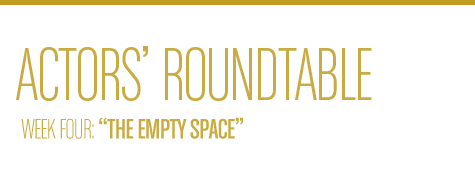PERFORMANCE: The Actors' Roundtable: "The Empty Space"
 Paden Fallis |
Paden Fallis |  November 2, 2012
November 2, 2012 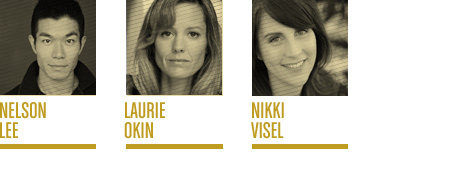 |
|
For 12 weeks, Paden Fallis posed one question each week to a group of professional working actors from a variety of backgrounds in an effort to dig a bit deeper into their artistic working processes. In this second series of 12, an expanded group of actors explores where their art fits into the larger cultural context. ACTOR’S ROUNDTABLE: THE EMPTY SPACEIn 2011, The Intiman Theatre, a powerhouse in the Seattle theatre scene, abruptly cancelled their season due to financial troubles and a 2.3-million-dollar debt. The entire staff was laid off and the long-running, award-winning theatre’s future was up in the air. In other news, at the start of Peter Brook’s seminal book, The Empty Space, published in 1968, Brook says this: I can take any empty space and call it a bare stage. A man walks across this empty space whilst someone else is watching him, and this is all that is needed for an act of theatre to be engaged. Brook’s thoughts. Intiman’s predicament. What am I missing here? Discuss… - Paden Fallis, Performing Arts Contributing Editor |
PERFORMANCE: The Actors' Roundtable: "Politics"
 Paden Fallis |
Paden Fallis |  October 25, 2012
October 25, 2012 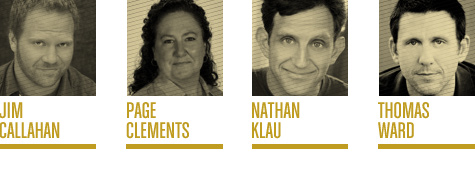 |
|
For 12 weeks, Paden Fallis posed one question each week to a group of professional working actors from a variety of backgrounds in an effort to dig a bit deeper into their artistic working processes. In this second series of 12, an expanded group of actors explores where their art fits into the larger cultural context. ACTOR’S ROUNDTABLE: POLITICSAre you incredulous when you hear an actor is a Republican? If so, why? If not, why not? - Paden Fallis, Performing Arts Contributing Editor |
Scenic Designers' Roundtable: The Moment of Artistic Power
 David Gallo |
David Gallo |  October 23, 2012
October 23, 2012 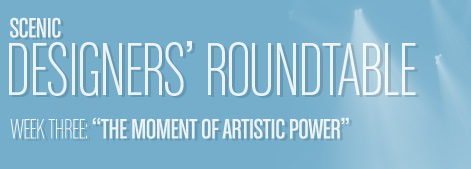 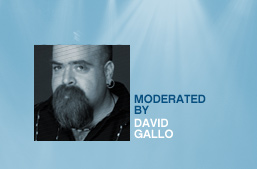 |
||||||
 |
||||||
Over the course of four weeks, scenic designer David Gallo will pose one question each week to a group of some of the top designers working in theatre and entertainment today. The hope is to scratch beneath the surface to glean some insights into these working artists’ artistic processes. SCENIC DESIGNERS’ ROUNDTABLE:
|
||||||
PERFORMANCE: The Actors' Roundtable: Awards Meat Parade
 Paden Fallis |
Paden Fallis |  October 18, 2012
October 18, 2012
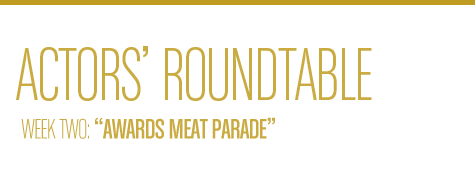 |
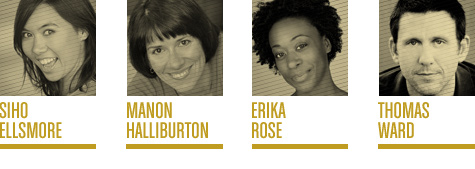 |
|
For 12 weeks, Paden Fallis posed one question each week to a group of professional working actors from a variety of backgrounds in an effort to dig a bit deeper into their artistic working processes. In this second series, an expanded group of actors explores where their art fits into the larger cultural context. ACTOR’S ROUNDTABLE: THE AWARDS MEAT PARADE“Demeaning” and “a two-hour meat parade” was how George C. Scott described The Oscars upon being nominated for his role in the movie Patton. He won, but did not attend. He was also nominated for his work in The Hustler, but did not attend. George C. Scott was, without a doubt, tightly wound. And yet I don’t think any of us would deny that the myriad of awards shows that seem to crop up year after year, have nothing to do with the work of an actor. However, does this need to designate winners and losers do a disservice to our work? Do we all lose something by playing into the “two-hour meat parade?” - Paden Fallis, Performing Arts Contributing Editor |













